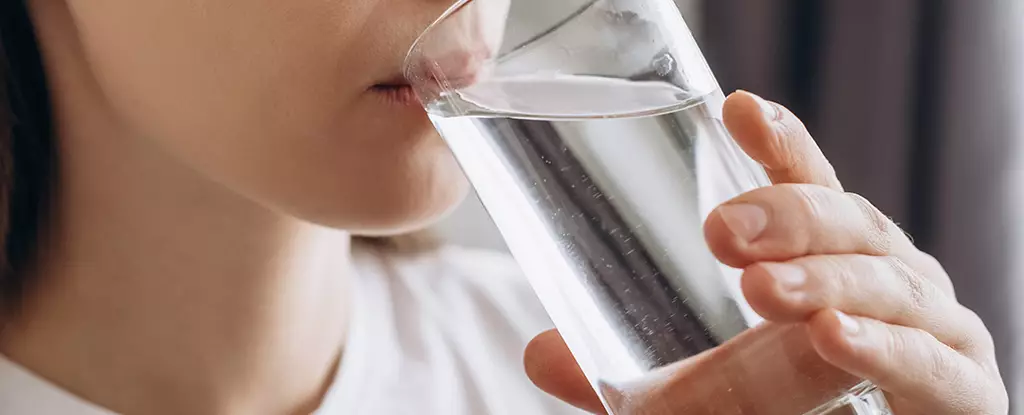Microplastics are becoming a growing concern as tiny fragments are making their way deep into our bodies through the food and drink that we consume. Researchers have discovered a simple and effective method of removing these microplastics from water, providing hope for reducing human exposure to these harmful particles.
A team of scientists from Guangzhou Medical University and Jinan University in China conducted tests using both soft water and hard tap water to determine the effectiveness of removing nanoplastics and microplastics (NMPs). By boiling the liquid and filtering out any precipitates, the researchers were able to remove up to 90 percent of the NMPs in some cases. This method proved to be simple and accessible for most people, as it can be done using common kitchen tools.
Effectiveness of the Process
The effectiveness of the boiling and filtering process varied depending on the type of water used. Samples of hard tap water, which contain more minerals and form limescale when heated, showed a greater concentration of NMPs being removed. Even in soft water, where there is less limescale build-up, approximately a quarter of the NMPs were trapped and removed. The calcium carbonate in hard water plays a key role in trapping the plastic fragments, making it easier to filter them out.
By drinking boiled water, individuals can potentially reduce their exposure to NMPs and alleviate the harmful effects of consuming microplastics. While boiled water drinking is a common practice in some regions, the research team hopes that it will become more widespread as the prevalence of plastics continues to rise. The long-term benefits of reducing global exposure to NMPs through this simple method could lead to significant improvements in human health.
While the impact of microplastics on our bodies is still being studied, evidence suggests that they can have negative effects on our gut microbiome and antibiotic resistance. Further research is needed to explore how boiled water consumption can help prevent the ingestion of artificial materials and mitigate the harmful effects of microplastics. The researchers involved in this study are advocating for more investigations with a larger sample size to solidify the findings and encourage widespread adoption of this strategy.
The presence of microplastics in our food and drink poses a serious threat to our health. The simple act of boiling water and filtering out NMPs can significantly reduce human exposure to these harmful particles. By incorporating this practice into our daily routine, we can take a proactive step towards protecting our bodies from the damaging effects of microplastics.


Leave a Reply